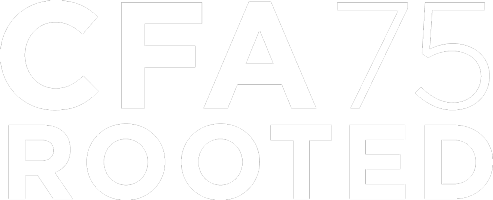• What obstacles get in the way of racial equity in academic settings?
• How do we honor dance forms in our curriculum that are not represented within the identities of faculty?
• How do we dismantle the hierarchies embedded in the teaching of histories and theories of dance?
• What does it look/feel like to have racial equity in dance?
• What does the future look like? What steps can we take?
This week, the U School of Dance will gather with our community of artists and educators, as well as speakers Gerald Casel, Rebecca Chaleff, Kimani Fowlin, and Tria Blu Wakpa for “Dancing Around Race,” a four-day immersion in these questions (among others!) and the accompanying practices that challenge and uproot the systemic exclusions whiteness has formed.
Assistant professor Kate Mattingly started to plan the project after attending the National Dance Education Conference where she presented her paper, “Connecting Dance Histories, Theories, and Criticism.” At the conference, Gerald Casel was also presenting his work, “Dancing Around Race – Interrogating Whiteness in Dance,” in which he brought together curators, critics, artists, and donors in the Bay Area to discuss race and colorblind racial ideology, issues and problems around diversity, and resilience and sustainability.
“Both of our presentations bypassed a typical pedagogical approach of looking at individual dancers who ‘overcome’ barriers, and focused on the systemic exclusions that prevent artists, students, and faculty from gaining access to opportunities,” Mattingly described.
Teaming up with colleague Kimani Fowlin, who was also at the conference, the three began to shape a program bringing these vital dialogues back to the University of Utah. They wanted to make a dedicated space to “address and challenge systemic exclusions in curricular design, teaching practices, and course contents.”
Tria Blu Wakpa and Rebecca Chaleff, who had both been panelists with Mattingly at a recent Dance Studies Association conference in Malta, were also clear choices for such a panel. In Malta, Blu Wakpa, Chaleff and Mattingly had focused their discussion on whiteness, settler colonialism, and injustices of recognition.
Along with Maile Arvin and Erika George, two scholars invested in research and teaching that calls attention to systemic exclusions and healing practices, Mattingly clarified key intentions for the program at the U, specifically in connecting students and faculty.
Among these goals, of which there are understandably many, the organizers hope to start building long-term and sustainable practices that redistribute unequal power dynamics, work to dismantle barriers in access in both course materials and curricula, foreground the importance of decolonizing methodologies, and positively engage students and faculty in practices of healing and self-care.
Increasing equity and access is already an active focus within the School of Dance, as evidenced by ongoing faculty- and student-led efforts. “Since I arrived at the University of Utah in July of 2017, I have admired the investment and insights of students in the ballet program who are addressing and challenging systemic exclusions,” Mattingly said.
For example, the Dance Studies Working Group, formed in January of 2018, traveled to San Francisco for talks and performances at the Unbound Festival and Boundless Symposium. (Read about their experience here!) Victoria Holmes, the founder of this group, won the CFA 2019 College of Fine Arts Outstanding Undergraduate Researcher award. Her thesis called attention to barriers and challenges faced by dancers of color, historically and currently.
“Dancing Around Race” is an opportunity to identify other ways to take positive action. “One of the ongoing challenges of this work is that people in positions of power are disinclined to change systems that bring them benefits, and what I see in the students at the U is that future generations of leaders are dedicated to asking hard questions and calling attention to oppressive environments,” Mattingly said.
“Dancing Around Race: Whiteness in Higher Education” Public Events:
January 16 Panel Discussion
With guests Gerald Casel, Rebecca Chaleff, Tria Blu Wakpa, and Kimani Fowlin moderated by Kate Mattingly
12:25 - 1:45pm in the Marriott Center for Dance Theater
January 17 Panel Discussion “Decolonizing Methodologies”
With Guests Maile Arvin, Tria Blu Wakpa, and Charles Sepulveda
2 - 3:20pm in Gardner Commons 5490
This project has been supported by a Dee Grant from the University of Utah.


